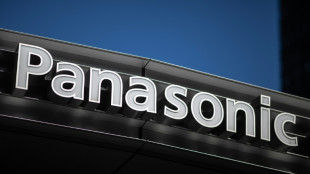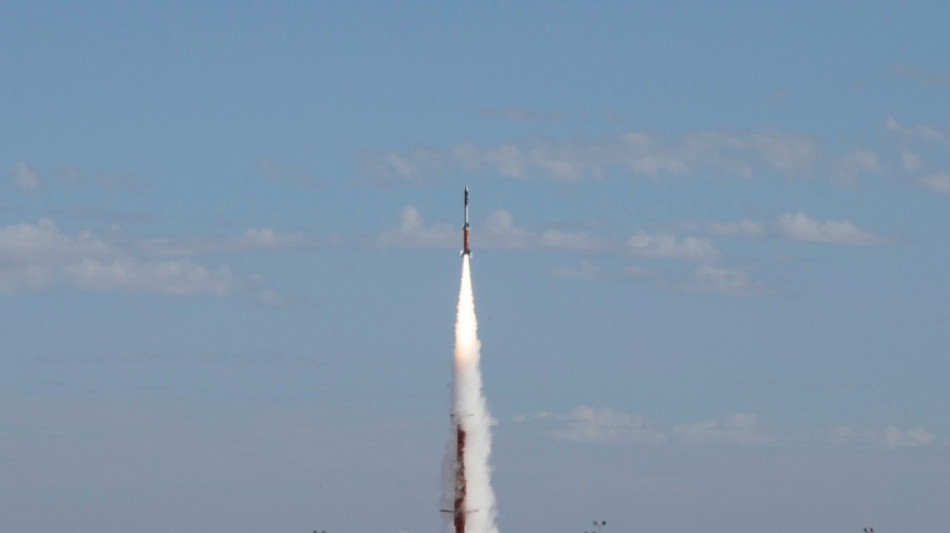
-
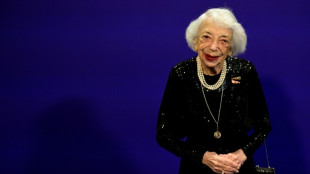 Renowned Holocaust survivor Margot Friedlaender dies at 103
Renowned Holocaust survivor Margot Friedlaender dies at 103
-
Woods, 16-year-old Charlie, misses out in US Open qualifier

-
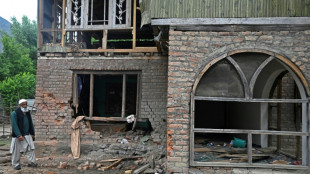 Pakistan says India has put neighbours 'closer to major conflict'
Pakistan says India has put neighbours 'closer to major conflict'
-
On patrol for jihadists with Mauritania's camel cavalry

-
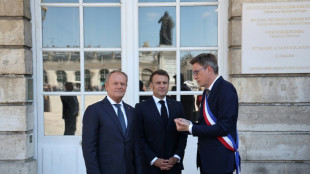 France, Poland sign treaty with mutual defence pledge
France, Poland sign treaty with mutual defence pledge
-
NATO chief seeks defence spending at 5% of GDP by 2032: Dutch PM
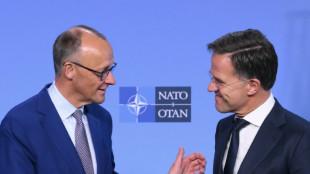
-
 La Rochelle head coach O'Gara suspended for five weeks
La Rochelle head coach O'Gara suspended for five weeks
-
Measles roars back in the US, topping 1,000 cases

-
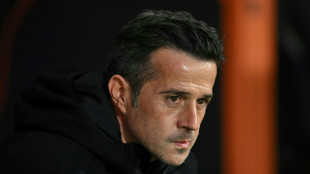 Fulham boss Silva refuses to rule out Saudi switch
Fulham boss Silva refuses to rule out Saudi switch
-
From Chicago to Chiclayo: Peruvian town hails adoptive son and pope
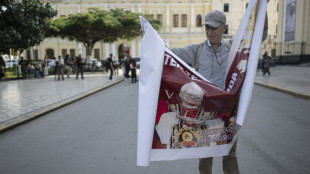
-
 Ivorian women fight FGM with reconstructive surgery
Ivorian women fight FGM with reconstructive surgery
-
Pedersen wins opening stage of Giro d'Italia in Albania

-
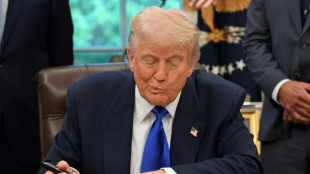 Stocks mixed despite hopes for US-China tariff talks
Stocks mixed despite hopes for US-China tariff talks
-
US, Swiss agree to speed up tariff talks
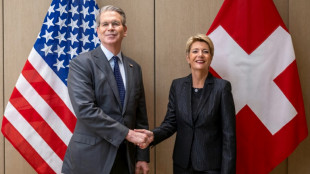
-
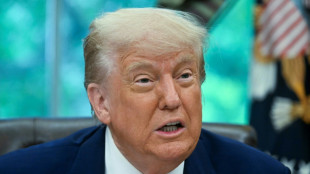 Trump floats cutting China tariffs to 80% ahead of trade talks
Trump floats cutting China tariffs to 80% ahead of trade talks
-
Pedersen wins opening stage of Giro d'Italia

-
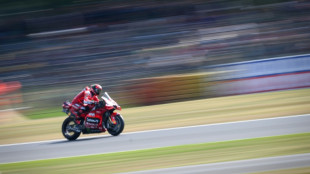 Marc Marquez sets Le Mans lap record in French MotoGP practice
Marc Marquez sets Le Mans lap record in French MotoGP practice
-
Jungle music: Chimp drumming reveals building blocks of human rhythm
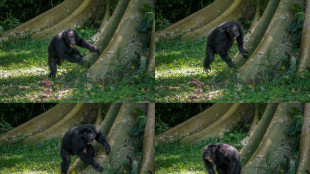
-
 Guardiola tells Man City stars to question their hunger after troubled season
Guardiola tells Man City stars to question their hunger after troubled season
-
Putin, Xi, Steven Seagal and missiles: Russia's Red Square parade

-
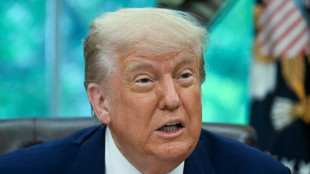 Trump suggests lower 80% China tariff ahead of Geneva trade talks
Trump suggests lower 80% China tariff ahead of Geneva trade talks
-
Arteta wants Arsenal to use Liverpool guard of honour as title fuel
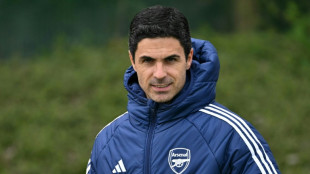
-
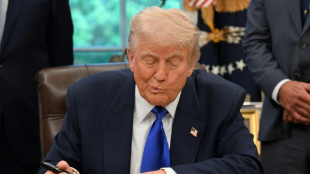 Stocks lifted by hopes for US-China talks
Stocks lifted by hopes for US-China talks
-
Putin hails troops in Ukraine as allies attend WWII parade
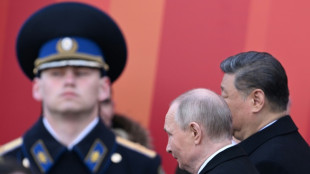
-
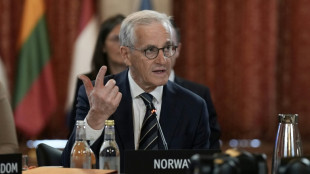 UK, northern European nations support Ukraine 30-day ceasefire: Norway PM
UK, northern European nations support Ukraine 30-day ceasefire: Norway PM
-
Activists hold 'die-in' protest at Soviet monument in Warsaw

-
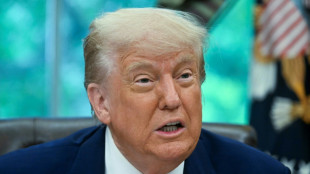 Trump suggests lower China tariff, says 80% 'seems right!'
Trump suggests lower China tariff, says 80% 'seems right!'
-
Alonso confirms exit from Leverkusen at end of season

-
 Maresca ready for Chelsea's 'huge' Newcastle test
Maresca ready for Chelsea's 'huge' Newcastle test
-
Alcaraz, Sabalenka cruise to wins at the Italian Open

-
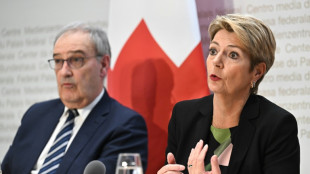 Swiss seize window of opportunity on Trump tariffs
Swiss seize window of opportunity on Trump tariffs
-
Amorim admits Man Utd 'problems' despite reaching Europa League final

-
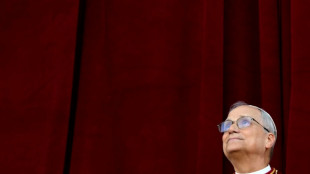 New Pope Leo XIV has mixed record on abuse: campaigners
New Pope Leo XIV has mixed record on abuse: campaigners
-
Xabi Alonso confirms exit from Bayer Leverkusen at season's end

-
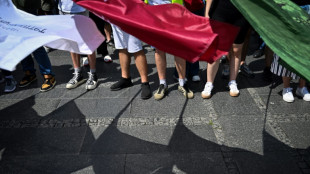 From blockades to ballots: Serbian students confront government
From blockades to ballots: Serbian students confront government
-
Kyiv's EU allies endorse tribunal to try Russian leaders
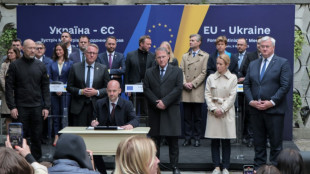
-
 Two men found guilty of chopping down iconic UK tree
Two men found guilty of chopping down iconic UK tree
-
Tennis, Twitter and marinated fish: Things to know about Pope Leo
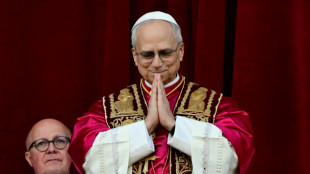
-
 Liverpool's Salah voted Football Writers' Player of the Year
Liverpool's Salah voted Football Writers' Player of the Year
-
Pakistan says India has brought neighbours 'closer to major conflict'
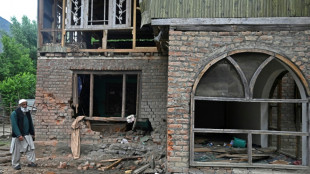
-
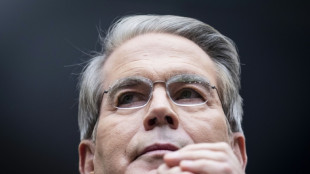 Stocks lifted by hopes for US-China talks after UK deal
Stocks lifted by hopes for US-China talks after UK deal
-
Putin hails troops fighting in Ukraine as foreign leaders attend parade
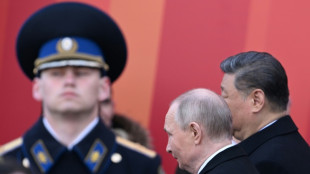
-
 Howe urges Newcastle to fulfil Champions League expectation
Howe urges Newcastle to fulfil Champions League expectation
-
Weary border residents in Indian Kashmir struggle to survive

-
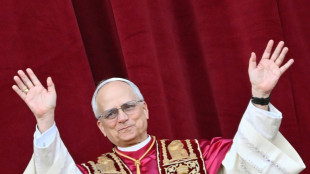 Leo XIV says Church must fight 'lack of faith' in first mass as pope
Leo XIV says Church must fight 'lack of faith' in first mass as pope
-
Liverpool boss Slot fears replacing Alexander-Arnold will be a tough task

-
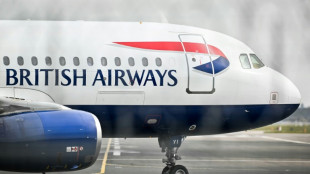 British Airways owner unveils big Boeing, Airbus order
British Airways owner unveils big Boeing, Airbus order
-
IPL suspended for one week over India-Pakistan conflict
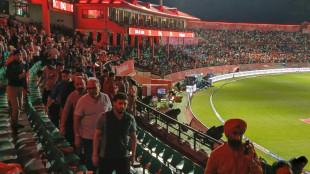
-
 Slot says all at Liverpool sad to see Alexander-Arnold go
Slot says all at Liverpool sad to see Alexander-Arnold go
-
Leo XIV celebrates first mass as pope in Sistine Chapel
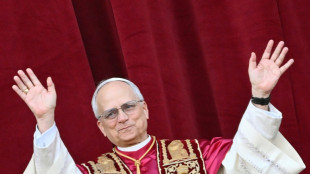

US, UK, Australia vow to cooperate on hypersonic weapons
The United States, Britain and Australia said Tuesday they would begin collaborating on hypersonic missile strike and defence capacity, as rivals Russia and China advance rapidly in the cutting-edge technology.
The trio said they would work on hypersonics in an expansion of their recent AUKUS defence alliance, which is to equip Australia with nuclear-powered submarines to counter China's growing military clout.
They pledged "new trilateral cooperation on hypersonics and counter-hypersonics, and electronic warfare capabilities" in a statement by US President Joe Biden, British Prime Minister Boris Johnson and Australian Prime Minister Scott Morrison.
Hypersonic missiles can travel more than five times the speed of sound and manoeuvre in mid-flight, making them much harder to track and intercept than traditional projectiles.
They may carry conventional or nuclear warheads.
Hypersonics and related technologies were now "very much a part of what the AUKUS partnership is striving to deliver", Australia's Morrison told reporters on Wednesday.
But there were few details about what the leaders' hypersonic plan entailed.
Marcus Hellyer, defence analyst at the Australian Strategic Policy Institute, said it was hard to judge "what is actually new" in the statement.
Australia and the United States were already working together on hypersonics, he said, although the new commitment may open up new areas of cooperation with Britain.
Australia announced in December 2020 it would work with the United States on developing hypersonic weapons in a so-called SCIFIRE programme.
And Canberra committed in its 2020 defence strategy programme to invest Aus$6.2 billion-9.3 billion (US$4.7 billion-7.0 billion) in high-speed, long-range strike and missile defence, including hypersonics.
- Russia ahead -
On the same day as the latest AUKUS announcement, the US military said it had recently completed a free-flight test of an aircraft-launched hypersonic missile that maintained a speed of more than Mach 5.
But rival powers are making rapid advances.
Russia is the most advanced nation in hypersonics while China is also aggressively developing the technology, according to the US Congressional Research Service.
Last month, Moscow claimed it had twice fired its newest Kinzhal hypersonic missiles to hit targets in Ukraine.
Russia has also claimed a series of successful tests including firing a Zircon hypersonic missile from a submerged submarine.
China tested a nuclear-capable hypersonic missile that circled the Earth last year, according to media reports confirmed by the Pentagon's top general. China said it was "a routine spacecraft test".
North Korea claimed to have carried out two hypersonic missile tests in January.
The United States, Britain and Australia launched AUKUS last September, vowing to provide Australia with the technology to build a nuclear-powered, conventionally armed submarine fleet, giving it greater stealth and reach in the Pacific region.
As a result, Canberra scrapped a multibillion-dollar submarine deal with France, infuriating Paris.
The three leaders said Tuesday they were "pleased" with progress on the Australian submarine programme.
F.Pedersen--AMWN
